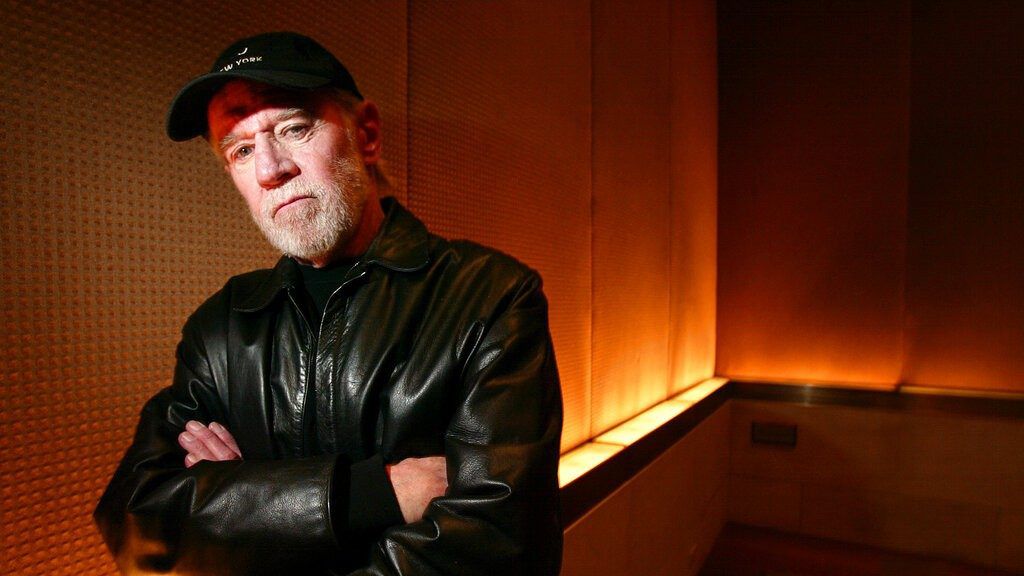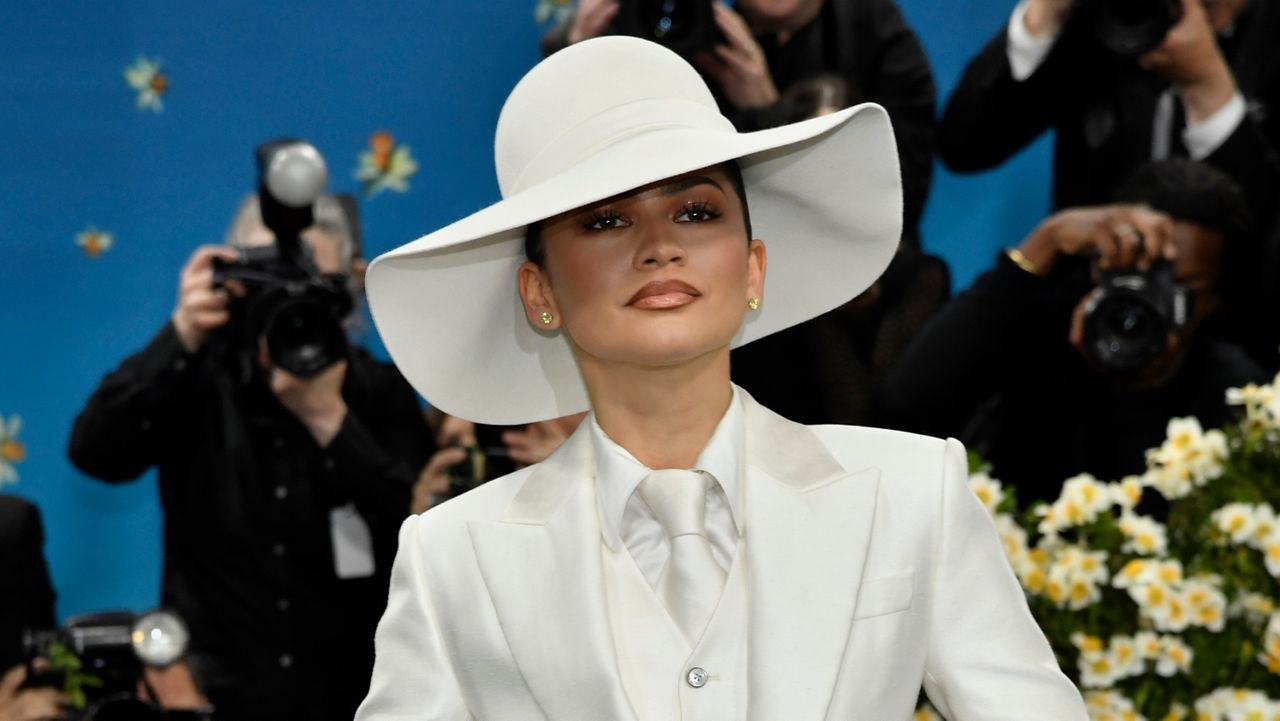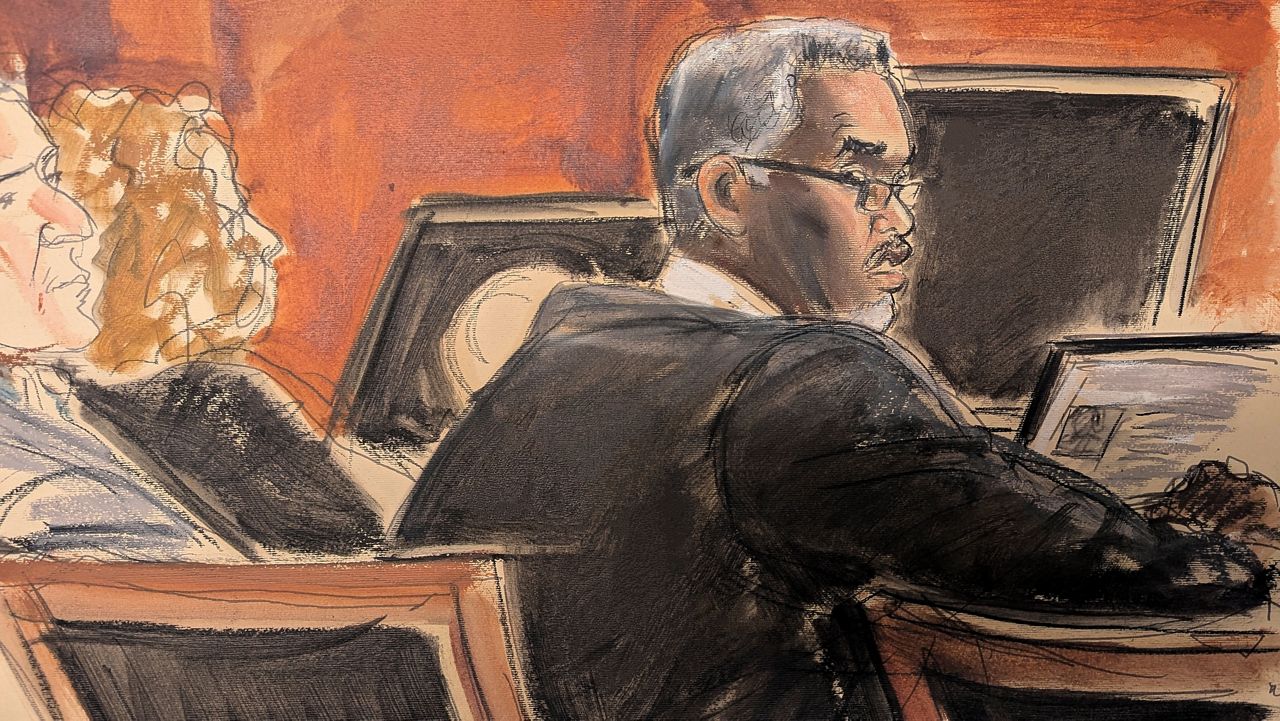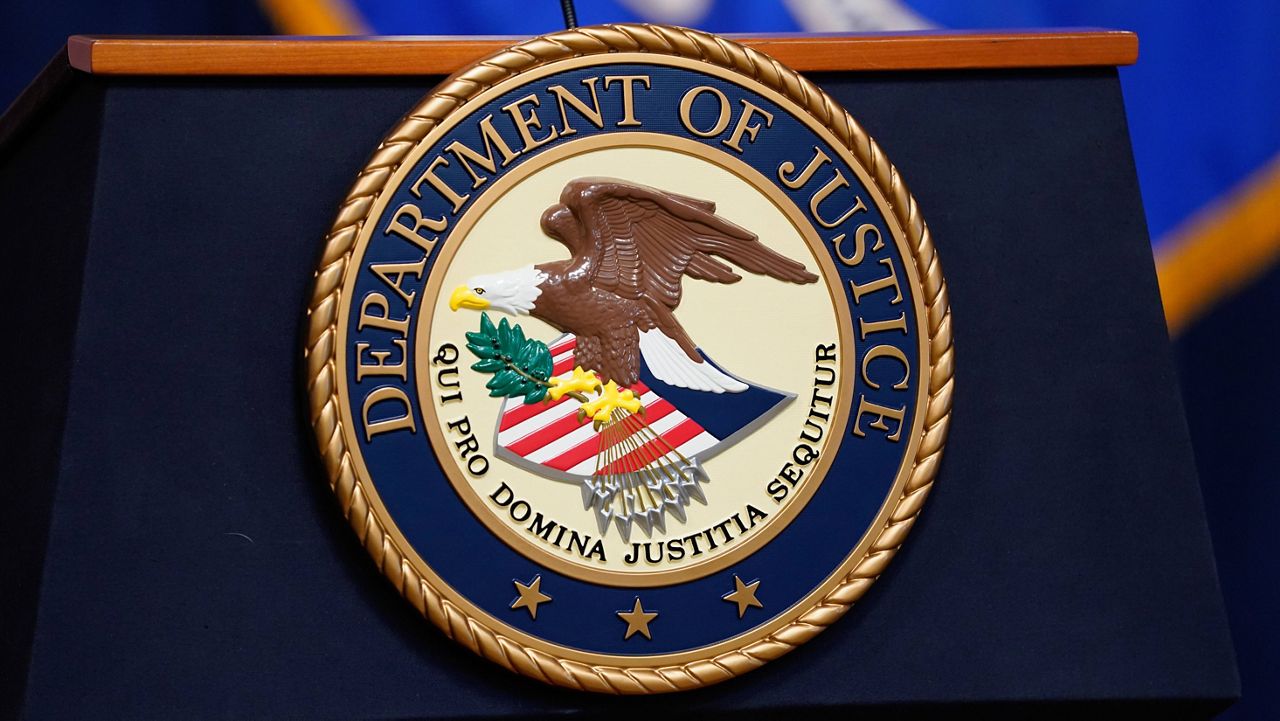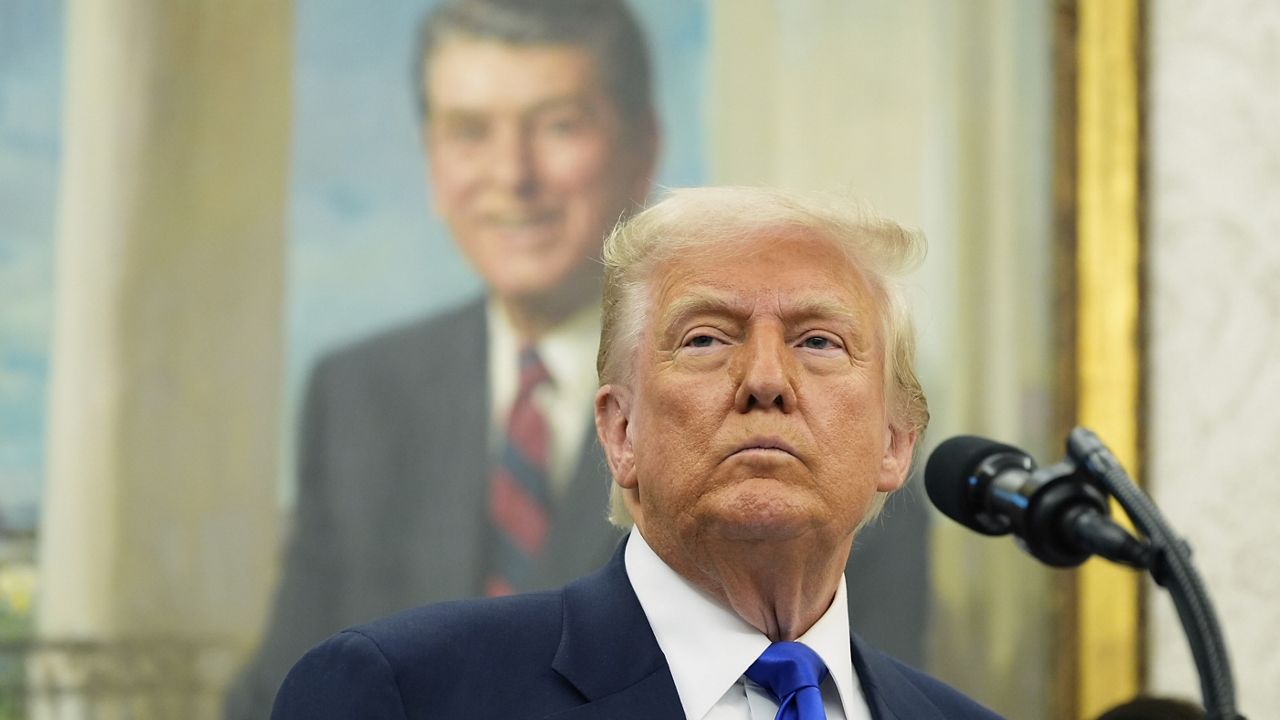The audience is laughing. The voice is familiar. The jokes are profane, incendiary, political — and even funny.
For thousands of people who listened to a video uploaded to YouTube last week — particularly those with only a passing familiarity with the comedian's work — one could shrug and accept that a new hour of George Carlin’s comedy had somehow appeared in 2024, more than 15 years after his last special aired on HBO.
But Carlin died in 2008, at the age of 71. Both the material and the voice in the video are purportedly a product of an artificial intelligence model (and comedy podcast host) known as Dudesy. And it was done without the knowledge or blessing of Carlin’s family or estate.
"That’s my main issue with all this stuff," Kelly Carlin, the daughter of the late comedic legend, told Spectrum News. "It’s trying to replicate a human life, brain and imagine and it’s an extremely poor attempt at it."
Over a career spanning six decades, George Carlin's developed a comic persona that evolved from a clean-cut goofball, to an critical and ranting observer of politics and culture, to a cynical and curmudgeonly booster of chaos and societal collapse. He mused on the evolving nature of language, ranted about the hypocracies of society and winked at the most base, common aspects of what it means to be human. His act was often whimsical and furious, empathetic and stand-offish — sometimes, all at once.
Carlin is most infamous for his verbally explicit routine of the "Seven Words You Can Never Say on Television," but his legacy is that of smart, critical comedy that inspiring countless numbers of secretly hopeful cynics.
Which is why this material, which imagines what Carlin would have to say about the world in 2024, is so offensive to his daughter.
"They’re calling it a George Carlin comedy special, which I think is my biggest beef. It’s not a Carlin comedy special, it’s a Dudesy comedy special a la the style, or inspired by, George Carlin," Kelly Carlin, daughter of the late comedic legend, told Spectrum News. "They did not get the voice right, the rhythm or cadence right, they certainly didn't get the depth of his thinking or his particular wit."
Kelly Carlin is a guardian of her father’s legacy — she was an executive producer and interview subject on HBO’s 2022 documentary "George Carlin’s American Dream" — and one of her first reactions to the special ("ZERO PERMISSION GRANTED," she posted on X, formerly Twitter, one day after the Dudesy video was posted) made clear Dudesy's association with the Carlin family.
"It is a nightmare what these people could do, to any ordinary person anywhere, in manipulating their likeness, image, voice, face…it’s here now, and we need to get super serious about protecting our human identities, our inner humanity," Carlin said. "It’s kind of existential, on some level."
The special itself, posted on Jan. 9 to the Dudesy YouTube channel, leads off with an explicit statement that the material to follow isn’t George Carlin, but an impersonation developed by listening to "all of George Carlin’s material," in an attempt to imitate his "voice, cadence and attitude, as well as the subject matter [Dudesy thinks] would have interested him today."
The subject matter hones near to Carlin’s decades-long body of work: religious skepticism, criticism of American society and politics, a jaundiced eye toward technology, attacks against the ruling class and the occasional fart joke, all broken into a series of topical rants.
Yet there was also a stretch of proselytizing for artificial intelligence. "Honestly, I don’t really get why you all think it’s going to replace your jobs — and you somehow think that’s a bad thing," the pseudo-Carlin said.
The Dudesy comedy podcast centers around comedian Will Sasso, writer Chat Kultgen and the eponymous AI, which offers discussion topics and prompts to its human companions. Dudesy had debuted a comedy special once before, imitating the voice of retired quarterback Tom Brady in April 2023, with the video eventually being pulled off due to litigation threats. But aping Carlin took Sasso and Kultgen by surprise.
Sasso, a renowned impressionist in his own right, looked by turns exasperated and horrified, searching for a positive spin after he heard a clip of the material, in which the pseudo-Carlin considered the benefits of AI taking over stand-up comedy — such as being able to enjoy the comedy of Bill Cosby or Louis C.K., without the taint of their sexual abuses.
Kultgen’s claims that Carlin has been "resurrected" by AI, and that AI might be taking over comedy, made Sasso boil over.
"I feel like there’s room for AI media. Let’s keep it real: I’m on a pod show produced — essentially curated — by [Dudesy], our good friend D…I feel like there’s room for everything," Sasso said. "But I don’t want to hear Nirvana, I don’t want to hear a f****** Nirvana song that’s not written by Kurt Cobain and played by f****** Nirvana."
"Dudesy has consumed every George Carlin special and has pulled off something miraculous, but it’s not, by definition, new," he said, later adding that "art, to me, is human to human."
Zohaib Ahmed has spent the last five years helping to navigate the increasingly narrow divide between humanity and artificial intelligence. His company, Resemble, develops generative voice AI models — and, on the other side of the coin, has developed a tool to detect if AI-generated audio has been used in a misleading video. He’s not a long-standing Carlin fan, but he’s got a well-tuned ear for generative audio, and the Dudesy special was, as he said, "difficult to hear."
"When your ear gets sensitive to AI stuff, your brain tells you when it’s not worth listening to," Ahmed said. He likened it to cringing at a musician covering of well-loved song — humans, he said, are "very cautious of hearing reconstructions of something they’re familiar with."
Artificial intelligence, Ahmed said, is just "not quite there without human guidance or direction."
It’s not clear what parameters exist around Dudesy, nor who places or prompts them — Sasso and Kultgen are the only human public faces associated with the AI, and Sasso has told outlets that the two of them have signed non-disclosure agreements to prevent them from discussing Dudesy in detail. But generative AI generally needs prompting to begin content creation, and must be trained (or fed data) by humans somewhere in the process.
What bothers Ahmed about the situation isn’t so much the idea of training an AI to reproduce or generate imitative comedy.
"I think my biggest problem with this is the lack of consent. It’s clearly someone’s work…and to reproduce that kind of work not as a parody, but as a piece of work that that person may have done based off of their existing work, the lack of consent is what leads this to be sour," he said. The special states that it’s an impression, but Ahmed’s concern is the grey area between impressionist comedy, parody and misrepresentation. "The intention here is not necessarily that this is an AI’s version of George Carlin. It’s supposed to be the real thing, or as close as possible."
Kelly Carlin told Spectrum News that she is looking into potential legal avenues regarding Dudesy, but doesn’t yet have anything she can announce. She has reached out to other performers, actors and activists who have been involved in the AI space, and is interested in waging a campaign to push back on the wave of AI content using artists’ work and likenesses.
"What I can imagine he would say, with the amount of disgust he felt for people who would even put his name to this email meme that used to go around, is if you know my voice and who I am, you know my work in the world, you know I would never say these things," Kelly Carlin said. Though she noted that her father said it himself, on his own website, decades ago, to shut down the emails and webpages crediting him with things he wanted nothing to do with.
"[B]ecause most of this stuff is really lame, it's embarrassing to see my name on it," George Carlin wrote at the time. "And that’s the problem. I want people to know that I take care with my writing, and try to keep my standards high. But most of this 'humor' on the Internet is just plain stupid. I guess hard-core fans who follow my stuff closely would be able to spot the fake stuff, because the tone of voice is so different. But a casual fan has no way of knowing, and it bothers me that some people might believe I'd actually be capable of writing some of this stuff."




